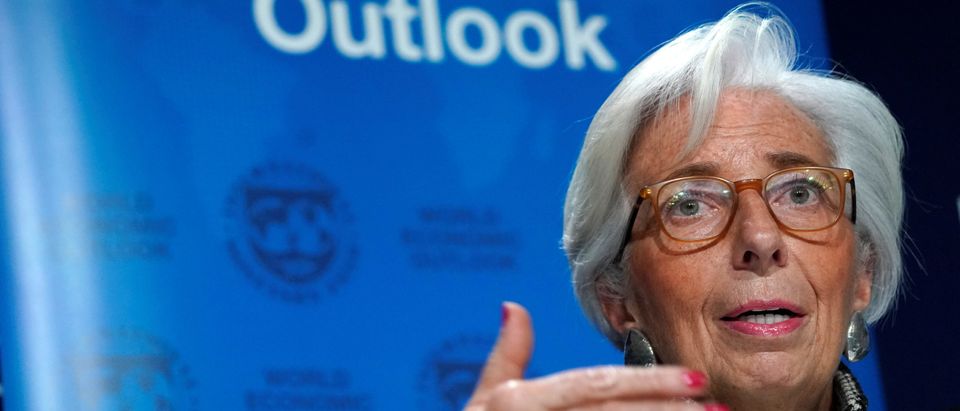The International Monetary Fund (IMF) released an update to its “World Economic Outlook” report on Tuesday, revising global economic growth down 0.4% from April to 3.2% for the year.
Global growth in 2023 could be an even more meager 2.9%, according to the IMF’s report. Inflation is also running rampant globally compared to past years, uncharacteristic for a contracting economy, with rates at 6.6% in advanced economies and 9.5% in emerging markets and developing economies.
The IMF cited harm done to European economies from the Russian-Ukrainian War, Chinese lockdowns, inflation eating into consumers’ spending power and tightening monetary policy around the globe as reasons for the revision in growth expectations.
Projected economic growth in the United States for 2022 was decreased by 1.4% from April’s predictions to 2.3%, and 2023 growth is expected to be just 1.0%, both down considerably less than the 5.7% growth recorded in 2021 as the economy recovered from the pandemic. (RELATED: The White House Wants To Redefine ‘Recession’ Ahead Of Possibly Disastrous GDP Report)
The IMF’s report also added that if Russia suddenly stopped all gas flows to Europe, inflation does not abate at the pace it is expected to, or widespread lockdowns continue in China, the world economy could witness growth as low as 2.6% in 2022 and 2.0% in 2023.
“The global economy has only grown at 2.0% or less five times since 1970,” IMF Chief Economist Pierre-Olivier Gourinchas said in a press conference, adding that “the world may soon be teetering on the edge of a global recession, only two years after the last one.”
🆕 The IMF projects the global economy to slow further to 3.2% in 2022 and 2.9% in 2023. The risk of unusually low growth is high. Read our analysis in the World Economic Outlook update. https://t.co/ldMsaieJUU #WEO pic.twitter.com/tbjQASegwq
— IMF (@IMFNews) July 26, 2022
While aggressive monetary policy will further kneecap economic growth, the IMF argues in the report that bringing price increases under control must come first and foremost for central banks around the world.
“Taming inflation should be the first priority for policymakers. Tighter monetary policy will inevitably have real economic costs, but delay will only exacerbate them,” the report argued.
All content created by the Daily Caller News Foundation, an independent and nonpartisan newswire service, is available without charge to any legitimate news publisher that can provide a large audience. All republished articles must include our logo, our reporter’s byline and their DCNF affiliation. For any questions about our guidelines or partnering with us, please contact licensing@dailycallernewsfoundation.org.


